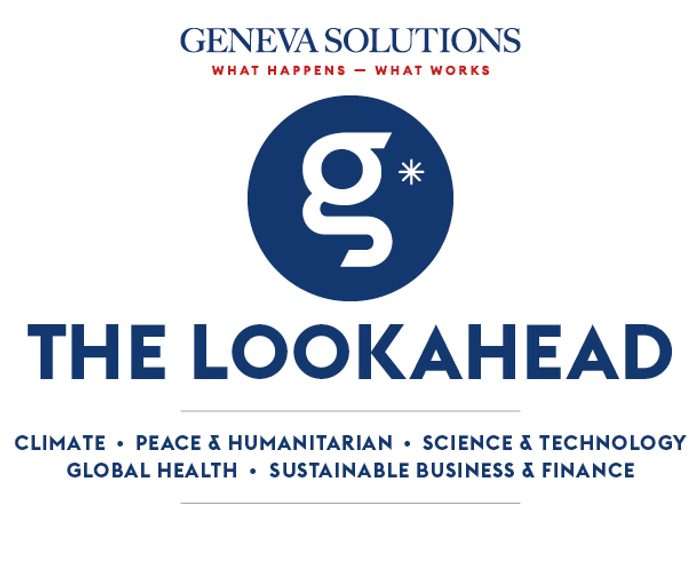Good morning, this is Michelle. Abuses are back in the spotlight in Geneva as the Human Rights Council convenes its summer session. With money tight, some states are once again grumbling about the council’s overloaded agenda – never mind that it is the very same states starving the UN – and the council along with it.
Elsewhere, climate talks ahead of Cop30 are heating up. And Israel’s attack on Iran rattles UN diplomacy on the Middle East. |

|

Delegates at a Human Rights Council session in Room XX at the Palais des Nations, 24 February 2025. (Keystone/Til Buergy)
|
|
Leaner UN Human Rights Council opens amid austerity push.
The Human Rights Council opens its summer session in Geneva on Monday. Once again, state members will turn their attention to the rights of women, migrants, Indigenous peoples, LGBTQI and other marginalised groups. But even for a body accustomed to crises, the Geneva-based council – and the whole UN human rights machinery – is bracing for one of a whole other magnitude.
Geneva Solutions (EN)
|
|
|
KICK OFF.
Despite meeting times being shortened, the Human Rights Council’s 59th session, running from today until 9 July, is set to be a busy one.
This morning, UN human rights chief Volker Türk will present his office’s annual report, listing its success stories and cost-efficient programmes, and in which he calls for an additional $500 million in support for 2025 as he grapples with the effects of the UN’s deep financial crisis.
Today, states will also hear about the situation in the eastern Democratic Republic of Congo, engulfed in conflict, and in poverty-stricken Afghanistan, where women's rights are being suppressed like nowhere else on Earth.
On Tuesday, the independent international commission on the Occupied Palestinian Territory will present a report that details the “deliberate targeting” of civilian installations in Gaza by the Israeli army. The commission’s chair, Navi Pillay, warned last week that there were increasing indications that Israel was conducting a “concerted campaign to obliterate Palestinian life in Gaza”. Israeli president Benjamin Netanyahu slammed the report as biased.
On the schedule that day is also the Fact-Finding Mission on Sudan, where war has unleashed “the world’s largest humanitarian crisis”, according to the UN, and yet one treated with indifference.
|
|
Behind the scenes.
Again absent from discussions in the Palais des Nations’ blue-ceilinged human rights hall is the United States, which announced its exit from the council in February. During the spring session, Reuters reported that Washington nonetheless continued to exert lobby for influence on key decisions behind the scenes.
Diplomats expect US delegates to hover in the background, while quietly hoping that their human rights apparatus is too damaged to fuss much about contentious issues like sexual orientation and gender identity.
|
|
Sri Lanka visit.
Later this month, Türk is scheduled to visit Sri Lanka, amid concerns from civil society that his visit may be instrumentalised by the new government.
Last August, the high commissioner urged authorities to address the root causes of conflict and accountability for wartime actions committed by the state and its separatist opponents during its war between 1983 and 2009. Both sides are accused of perpetrating sexual violence, torture and killings.
Institutional discrimination against Tamil and other minorities continues, according to rights groups. Türk’s visit is the first by a UN rights chief to the country in nine years.
|
|
CLIMATE TALKS.
Ahead of this year’s UN climate conference, its mid-way planning meeting begins in Bonn today as the Brazilian Cop30 presidency lays out priorities for the November agenda.
André Corrêa do Lago, who will preside over the session in Belém, said topics will include transitioning away from fossil fuels, investing in adaptation and agreement on a framework for just transition.
|
|
Heating up.
The Bonn talks come as the World Meteorological Organization warns of a 70 per cent chance that the five-year warming average till 2029 will be more than the 1.5°C limit set by the Paris agreement. This represents a sharp rise from the 47 per cent chance estimate in last year’s report.
|
|
Waning efforts.
Only 22 out of the more than 190 countries have submitted their updated climate targets – NDCs in Cop lingo. Major polluters China, India and the European Union have still not submitted their 2035 targets.
|
|
SUSPENDED.
A UN conference initially scheduled for this week in New York that was meant to revive a two-state solution for Israel and Palestine has been postponed for “security reasons” after the Israeli attack on Iran last Thursday. The US had threatened earlier last week with diplomatic reprisals against governments attending the gathering, co-sponsored by France and Saudi Arabia.
– By Paula Dupraz-Dobias and Michelle Langrand
|
|
Also on the agenda
-
📌 17 June | Building on success: insights, reflections, and next steps for the pandemic treaty.
A month after the treaty’s adoption, the negotiations co-chair, Anne-Clair Amprou, representatives from Colombia and Singapore, and civil society assess the way forward ahead of talks aimed at ironing out the finishing touches on the controversial Pathogen Access and Benefit-Sharing System.
Geneva Graduate Institute (EN)
-
📌 19 June | Visit of Domaine Rigot.
Located at the Place des Nations intersection and purchased by financier and philanthropist John D. Rockefeller Jr, before donating it to Geneva in the 1940s, the 1,000 m² urban tree nursery now supports the city’s climate goals.
2050 Today (EN)
-
For more events, visit the Genève Internationale website.
|
|
GS news is a new media project covering the world of international cooperation and development. Don’t hesitate to forward our newsletter!
Have a good day!
|

|
|
Avenue du Bouchet 2
1209 Genève
Suisse
|
|
|
|








